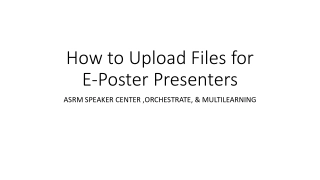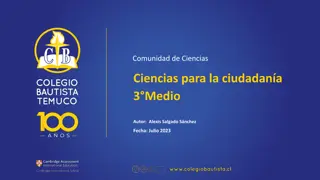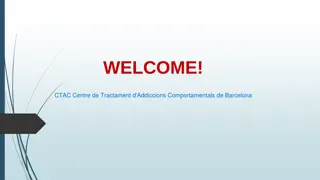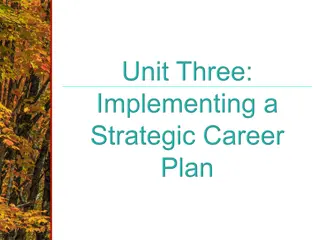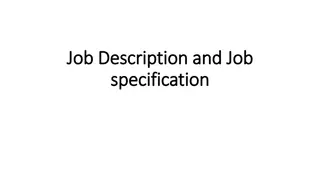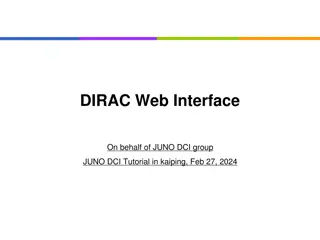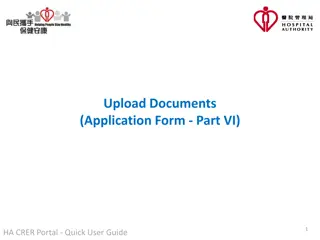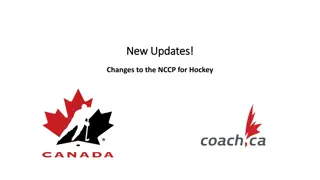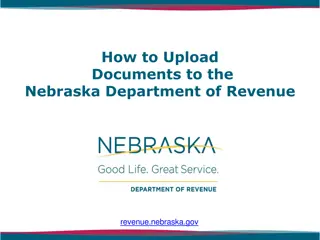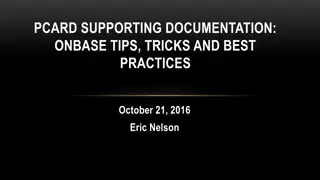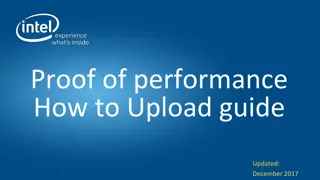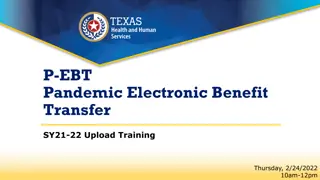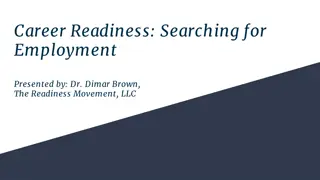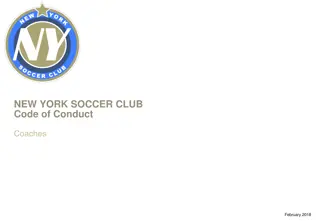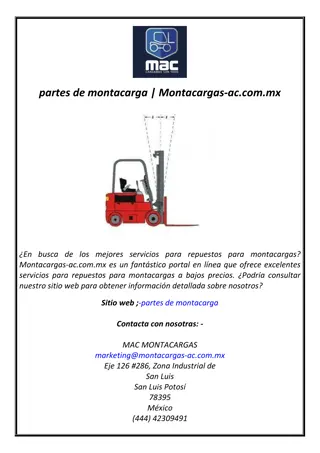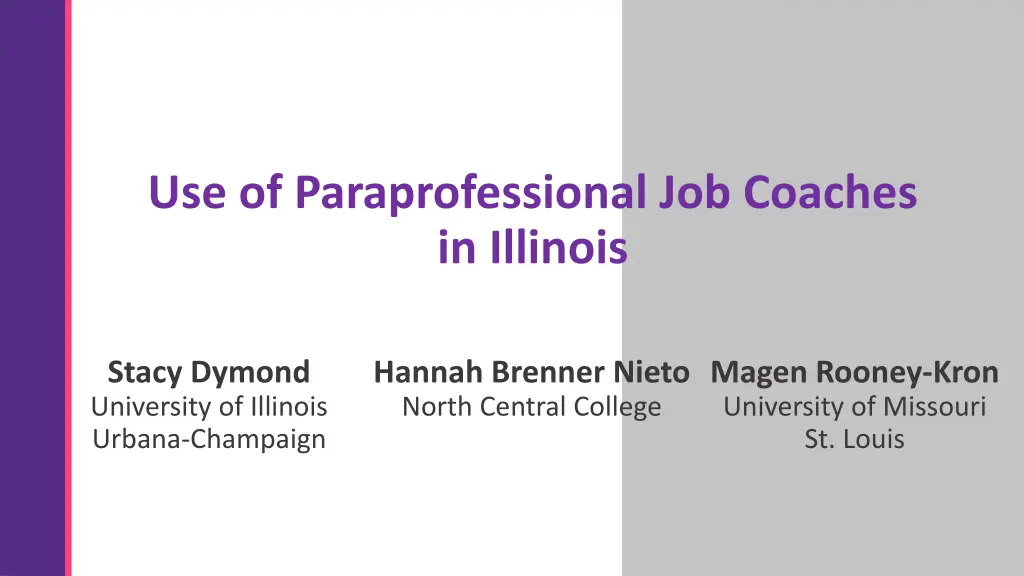
Role of Paraprofessional Job Coaches Supporting Individuals with Disabilities in Illinois
Discover the vital role of paraprofessional job coaches in aiding individuals with disabilities in Illinois, from community-based work experiences to essential responsibilities and challenges. Learn about their qualifications, training, and supervision, along with insights from a study conducted in Illinois. Explore the unique activities and support provided by paraprofessional job coaches, bridging the gap between education and integrated employment for those with disabilities.
Download Presentation

Please find below an Image/Link to download the presentation.
The content on the website is provided AS IS for your information and personal use only. It may not be sold, licensed, or shared on other websites without obtaining consent from the author. If you encounter any issues during the download, it is possible that the publisher has removed the file from their server.
You are allowed to download the files provided on this website for personal or commercial use, subject to the condition that they are used lawfully. All files are the property of their respective owners.
The content on the website is provided AS IS for your information and personal use only. It may not be sold, licensed, or shared on other websites without obtaining consent from the author.
E N D
Presentation Transcript
Use of Paraprofessional Job Coaches in Illinois Stacy Dymond University of Illinois Urbana-Champaign Hannah Brenner Nieto North Central College Magen Rooney-Kron University of Missouri St. Louis
Purpose Share literature about the role of paraprofessionals and paraprofessional job coaches Describe findings from a study we conducted in Illinois Qualifications Training Supervision Responsibilities Discuss ideas, challenges, and recommendations about the role of paraprofessional job coaches
Introduction Community-based work experiences (CBWEs) are an essential component of vocational programming for students with disabilities Limited certified staff and scheduling issues often lead to paraprofessionals (i.e., teachers assistants) supporting students at community worksites In this capacity, paraprofessionals are essentially acting as job coaches, a title typically used in supported and customized employment for adults with disabilities Brenner & Dymond, 2023; Hoff et al., 2021; IDEA, 2004; WIOA, 2015
Typical Role of Paraprofessionals Paraprofessionals support students with disabilities under the direction of a licensed special education teachers (IDEA, 2004) Primarily support students in special and general education classrooms 1:1 or small-group instruction Social skills, behavioral, and self-care support; general supervision May support students during community-based instruction (CBI) Carter et al., 2009; Fisher & Pleasants, 2012
Paraprofessionals as Job Coaches Job coaches support adults with disabilities in obtaining and maintaining competitive, integrated employment (ACRE, 2021) Assessment and career planning Community research and job development Workplace and related supports Paraprofessional job coaches may need to use practices that they are not accustomed to using in the classroom, such as: Identifying and facilitating natural supports at the worksite Job analysis (i.e., a process to understand a job s tasks and responsibilities) Interfacing with employers Carter et al., 2008; Gilson et al., 2020; Rogan & Held, 1999
Paraprofessional Job Coach Activities Brenner & Dymond (in preparation) Teach and reinforce skills at the worksite Share information regularly with certified staff back at school Provide safety and supervisory supports Collect numerical or anecdotal data on student performance
Concerns About Training and Supervision of Paraprofessional Job Coaches Lack of training specific to supporting students with disabilities during work experiences Lack of training on effective instructional practices (e.g., systematic instruction) that could be applied within community work settings Limited to no ongoing supervision or evaluation of job coaches Awsumb et al., 2022; Brenner & Dymond, in preparation; Brock & Carter, 2015; Rooney-Kron & Dymond, 2021
Study Purpose/Research Questions To understand: the qualifications and responsibilities of paraprofessional job coaches who are employed by schools, the training these job coaches receive, and the role of school professionals directing the activities of job coaches The relation between responsibilities and school size, urbanicity, and presence of a vocational coordinator at the school
Participant Inclusion Criteria School professional Work in the state of Illinois Directed or supervised the activities of at least 1 job coach in the last 12 months
Job Coach Definition A paraprofessional/teaching assistant employed by the school who supports students with disabilities to learn work skills at businesses in the community
Recruitment of Participants Distributed a 1-page flyer 4 regional workshops/conferences ICTW listserv Statewide meeting of transition coordinators Professional contacts
Questionnaire 66 questions (multiple choice, Likert scale) Sections Job coach qualifications Job coach training Your role in directing the activities of job coaches Job coach responsibilities Demographics 15-20 minutes to complete
Data Collection and Analysis Online, anonymous survey Each person received a unique link Reminder email sent one week later Questionnaire remained open for 3 months Analyzed using descriptive and inferential statistics
Participant Demographics (N=110) Position 62% Vocational coordinator 59% SPED teacher 12% SPED administrator Type of school 43% Integrated 25% Special education 24% Transition center 8% Community based/sped coop School size 55% less than 500 students 45% 500 or more students Location 70% Urban 30% Rural Vocational/Transition Coordinator 82% yes 18% no Region of Illinois 48% Northeast 2% Northwest 9% West central 17% East central 6% Southern
Qualifications 74% had the same hiring qualifications for job coaches and paras 42% had different job descriptions for job coaches and paras
How do these findings relate to your experiences? Job Coach Qualifications
Job Coach Training 53.6% Vocational/transition coordinator 28.2% Special education teacher Primary Person Responsible
Job Coach Training Topics Most Frequent 69.7% Same as other paraprofessionals 56.9% Instructional strategies 53.3% Understanding the role of the job coach Least Frequent 29.4% Natural supports 28.0% Rationale for work- based learning 22.9% Building school and business relationships 20.2% School policies for community instruction
Reasons Hypothesized for Limited Specialized Job Coach Training Job coaches/paras have same job description Mason et al. (2021) reported lack of differentiation of para training by role Lack of clarity about who is responsible for training Brenner & Dymond (2023) some teachers believe it is not their role Schutz et al. (2024) transition coordinators report unclear role Absence of appropriate training materials Douglas (2019) found only 1 curriculum on para job coach training
Only 32% of participants reported job coaches at their school received training more than once a year. Overall frequency of training ranged from weekly to never.
Methods/Frequency of Job Coach Training Most frequent methods On the job training (69.1%) Staff/team meetings (61.8%) Frequency provided On the fly (46%) Professional development days (26%) Regularly scheduled meetings before/after school (26%)
Episodic, on-the-fly training aligns with prior literature (Carter et al., 2008; French, 2001) Contrasts with effective training practices (Brock, 2017) use of an implementation checklist explaining steps on the checklist modeling each step observing the paraprofessional implementing each step providing performance feedback
How do these findings relate to your experiences? Job Coach Training
Directing Job Coaches Roles Supervising job coaches (72%) Providing ongoing training (66%) Coordinating the job coach s activities (65%) Evaluating job coach performance (44%)
Meetings with Job Coaches Most met with their job coaches daily (31%) or once a week (39%) Most meetings averaged 6-20 minutes (45.7%) Frequency Face-to-face (98.1%) Location of meetings Student concerns (94%), student progress (88%), concerns about the worksite (84%), changes needed at the worksite (75%) Little on job coach performance (33%) or responsibilities (32%) Focus of meetings
Person Responsible for Supervision of Job Coaches at Worksites Vocational/transition coordinator (46%) Special education teacher (18%) Building/district administrator (10%) Employee at the business (6%) No one/not sure (19%)
One-quarter of the participants indicated that job coaches receive no supervision from school personnel at community worksites.
Methods for Gathering Information About Job Coach Performance Observations at the worksite (69%) Review of student data collected by job coach (52%) Feedback from business partner (46%) Student feedback about the WBL experience (34%) I do not gather information about job coach performance (16%)
Supervision Challenges to supervising paraprofessionals (Biggs et al., 2019; Douglas et al., 2019; French, 2001; Mason et al., 2021; Sharma & Salend, 2016) Limited to no preservice training Role not defined by school district Performance expectations for paras are unclear Additional challenges to supervising job coaches may be due to: Different locations of job coaches and supervisor Unclear supervision roles and expectations Dedicated supervision time
How do these findings relate to your experiences? Job Coach Supervision
Job Coach Responsibilities 32 responsibilities Rated each from 1 to 10 1 = not a responsibility (i.e., job coaches at my school are not expected to perform this task) 10 = a major responsibility (i.e., this is a core task job coaches at my school are expected to perform)
Factors 10 9 8 7 6 5 4 3 2 1 0 Providing Instruction Facilitating positive relationships with businesses Planning Instruction Developing CBWEs
Highest Rated Responsibilities (above 8.0) Provide reinforcement to the student Provide instructional prompts to the student Help students navigate the social demands of the work environment Make sure student s work meets business expectations for quality Conduct work in a manner that reflects the culture of the business Collect student performance data
Lowest Rated Responsibilities (3.0 or less) Contact businesses to share information about the school s work- based learning program Analyze business sites to identify match between student interests and job tasks Secure written agreement from the business to serve as a work- based learning site
Responsibilities Teachers develop sites and provide initial job training. Paraprofessionals assist with instruction and facilitate natural supports once site is established (Rogan & Held, 1999) Paraprofessionals work under the direction of licensed school personnel (CEC Paraprofessional Competencies, 2022) Ill-defined job descriptions and limited supervision may blur roles (Giangreco et al., 2001)
Responsibilities and School Location Participants from rural schools rated developing CBWEs as a significantly greater responsibility of job coaches than participants from urban schools.
Responsibilities and Presence of a Vocational/Transition Coordinator Participants with a vocational/transition coordinator rated job coaches responsibilities related to providing instruction significantly higher than participants who did not have a vocational/transition coordinator
How do these findings relate to your experiences? Job Coach Responsibilities
Limitations Convenience sample no random sampling Most participants were white, female, had a graduate degree, and worked in an urban region of the state Findings based on participant report Findings may not apply to other types of personnel who serve as job coaches (e.g., school professionals, adult service agency staff)
Implications for Practice Define job coach roles and responsibilities, including how they differ from classroom paraprofessionals Develop guidelines to clarify educators roles and responsibilities for training, supervising, and evaluating job coaches
Implications for Practice Examine the topics, methods, frequency, and duration of training job coaches receive to see if it is sufficiently specialized Provide school personnel with release time from other duties to supervise job coaches at the worksite
Questions? For future questions: Stacy Dymond: sdymond@illinois.edu Hannah Brenner Nieto: hbnieto@noctrl.edu Magen Rooney-Kron: rooneyma@umsl.edu

